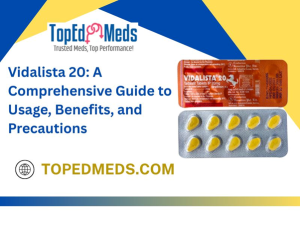Medical certificate applications through digital consultations require specific preparation and a clear understanding of the assessment process before scheduling your appointment. Virtual medical evaluations follow established clinical protocols that ensure legitimate medical conditions receive appropriate certification while maintaining professional healthcare standards. The nextclinic.com.au demonstrates how modern telemedicine enables accessible medical certification through qualified practitioners who conduct thorough assessments via secure digital consultations.
Preparation steps essential
Virtual medical consultations require patients to create suitable environments for comprehensive health assessments before connecting with healthcare professionals. doctor certifiate online applications benefit from quiet, well-lit spaces where practitioners can clearly observe patients and conduct detailed symptom evaluations. Your preparation should include testing your internet connection, camera functionality, and audio quality to ensure seamless communication during the medical assessment. Your consultation should be timed according to the intensity of your symptoms and how they affect your day-to-day life. Scheduling consultations when symptoms are present or at their peak severity provides practitioners with accurate observations of your condition. This timing allows for real-time assessment of symptom severity, functional limitations, and the genuine impact on your ability to perform work or other activities that require medical certification.
Virtual consultation
Healthcare practitioners conducting online assessments follow structured evaluation protocols that mirror in-person consultations while adapting to digital communication methods. The consultation process includes comprehensive symptom assessment, medical history review, and observation of visible signs that support your medical condition. Practitioners may request specific movements, breathing exercises, or position changes to evaluate your condition thoroughly through the video connection. Professional medical standards apply equally to virtual and in-person consultations, ensuring certificates issued through digital channels maintain the same validity and legal standing. Practitioners must verify identity, assess genuine medical conditions, and determine appropriate certification periods based on clinical evaluation. The virtual format does not compromise the thoroughness or legitimacy of the medical assessment process.
Certificate validity periods
Medical certificates issued through virtual consultations must reflect realistic recovery timelines based on the assessed condition and expected healing progression. Practitioners determine certification periods using clinical judgment, medical evidence, and established treatment protocols for specific situations. The certificate duration cannot exceed what is medically justified based on the practitioner’s professional assessment of your condition and anticipated recovery timeline. Certificate validity connects directly to the medical condition’s expected course and the time reasonably required for symptom resolution or management. Practitioners consider factors including condition severity, treatment requirements, and your specific work demands when determining appropriate certification periods. Extensions or modifications to certificate periods require additional consultations and reassessment of your medical status.
Professional assessment standards
Licensed healthcare practitioners conducting virtual consultations maintain the same ethical and legal obligations as traditional in-person medical assessments. The evaluation process includes identity verification, medical history review, symptom assessment, and clinical decision-making based on professional medical training. Practitioners cannot issue certificates without genuine medical justification or extend certification periods beyond what clinical evidence supports. Quality assurance measures ensure that virtual medical certificates meet regulatory requirements and professional healthcare standards. Practitioners document their assessments, maintain patient records, and follow established protocols for medical certification. This comprehensive approach ensures that digitally issued certificates maintain legitimacy and acceptance by employers, educational institutions, and other organisations requiring medical documentation.




